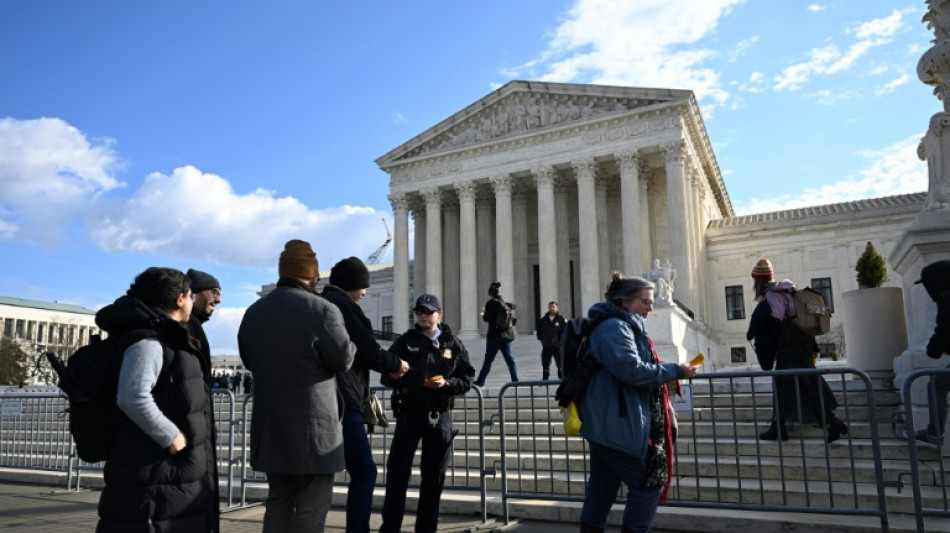
-
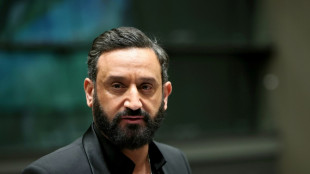 French right-wing TV host fans talk of presidential bid
French right-wing TV host fans talk of presidential bid
-
Two men in court charged with 'moronic' felling of famed UK tree
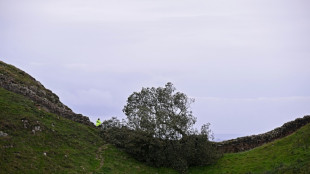
-
 Amnesty accuses Israel of 'live-streamed genocide' against Gazans
Amnesty accuses Israel of 'live-streamed genocide' against Gazans
-
Spotify posts record profit in first quarter
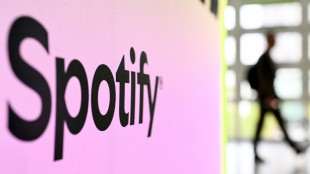
-
 Sciver-Brunt named as England women's cricket captain
Sciver-Brunt named as England women's cricket captain
-
GM profits top estimates, but automaker reviewing outlook due to tariffs

-
 Stock markets edge up as Trump softens tariff pain for auto firms
Stock markets edge up as Trump softens tariff pain for auto firms
-
Pricier trainers? Adidas warns on US tariff impact

-
 Spain, Portugal rule out cyberattack for massive blackout
Spain, Portugal rule out cyberattack for massive blackout
-
Suryavanshi, 14, dubbed India's next superstar after shattering records

-
 Power back in Spain, Portugal after massive blackout
Power back in Spain, Portugal after massive blackout
-
Pakistan says it shot down Indian drone along Kashmir border

-
 Cardinals run the media gauntlet ahead of conclave
Cardinals run the media gauntlet ahead of conclave
-
BP profit drops 70% amid pivot back to oil and gas

-
 Iran says fire contained after deadly blast at key port
Iran says fire contained after deadly blast at key port
-
Irish rappers Kneecap deny support for Hamas, Hezbollah

-
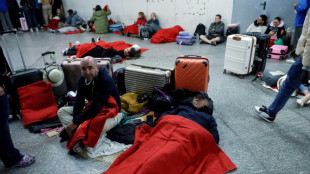 Blackout plunges Spain into chaotic night of darkness
Blackout plunges Spain into chaotic night of darkness
-
Convicted cardinal confirms he will sit out conclave

-
 Kashmiris fortify bunkers anticipating India-Pakistan crossfire
Kashmiris fortify bunkers anticipating India-Pakistan crossfire
-
Adidas warns US tariffs to push up prices

-
 Markets boosted as Trump softens tariff pain for auto firms
Markets boosted as Trump softens tariff pain for auto firms
-
Suryavanshi, 14, dubbed 'next superstar' after batting records tumble

-
 Australian doubles player Purcell accepts 18-month doping ban
Australian doubles player Purcell accepts 18-month doping ban
-
Kashmir attack unites political foes in India, Pakistan
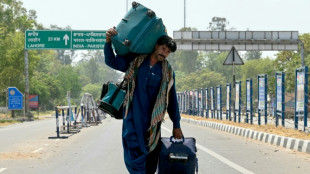
-
 Croatia hotel toasts dizzying century of stars, sovereigns and champagne
Croatia hotel toasts dizzying century of stars, sovereigns and champagne
-
Kenya's desperate need for more snake antivenom

-
 Les Kiss in frame with Wallabies set to name new coach
Les Kiss in frame with Wallabies set to name new coach
-
Cavaliers scorch Heat, Warriors down Rockets in thriller

-
 Opposition wins Trinidad and Tobago election, returning Persad-Bissessar as PM
Opposition wins Trinidad and Tobago election, returning Persad-Bissessar as PM
-
Study sheds light on origin of Australia's odd echidna

-
 France tries Syrian Islamist rebel ex-spokesman on war crime charges
France tries Syrian Islamist rebel ex-spokesman on war crime charges
-
Trump boasts of 'fun' 100 days, but Americans disenchanted

-
 Elitist no more, caviar is turning casual
Elitist no more, caviar is turning casual
-
Amnesty accuses Israel of 'live-streamed genocide' against Gaza Palestinians

-
 Inter slump puts season at risk ahead of daunting Barca trip
Inter slump puts season at risk ahead of daunting Barca trip
-
Power returns to most of Spain, Portugal after massive blackout

-
 'I have hope': Vietnam Babylift survivor's search for birth mother
'I have hope': Vietnam Babylift survivor's search for birth mother
-
US climate assessment thrown into doubt as Trump dismisses authors
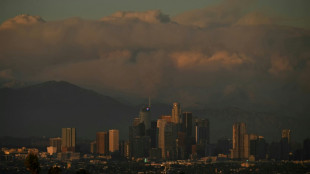
-
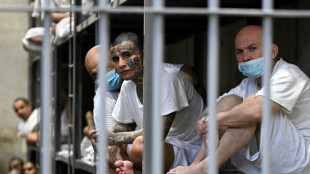 Venezuelan president slams US over little girl's 'abduction'
Venezuelan president slams US over little girl's 'abduction'
-
Hard-right upstarts eye big gains in local UK polls

-
 Skulls, smoke and spirits: Thai ceremony for the unclaimed dead
Skulls, smoke and spirits: Thai ceremony for the unclaimed dead
-
Canada's Carney: political newcomer who says he's best in a crisis

-
 Cavaliers scorch Heat to seal series sweep
Cavaliers scorch Heat to seal series sweep
-
Dead salmon create election stink on Australian island
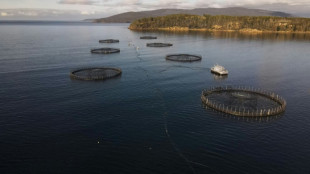
-
 Mic check: Singapore's podcast boom amplifies opposition voices
Mic check: Singapore's podcast boom amplifies opposition voices
-
Markets rise as traders gear up for earnings, key jobs data

-
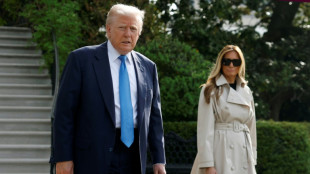 Congress passes 'revenge porn' ban, sending it to Trump
Congress passes 'revenge porn' ban, sending it to Trump
-
Spain and Portugal work to restore power after massive blackout

-
 Less-thirsty rice offers hope in drought-stricken Chile
Less-thirsty rice offers hope in drought-stricken Chile
-
Yamal stardust could give Barca edge on Inter Milan


US Supreme Court treads carefully on landmark tech law
The US Supreme Court on Tuesday heard arguments in a landmark case that could transform the internet by scrapping decades-old legal protections for tech companies, but gave no indication that a clear majority would opt to rework the law.
In a two-and-a-half-hour session, the nine justices targeted their questions on better understanding the so-called Section 230, a US law that was signed in 1996 at the dawn of the internet era and before the creation of Google.
The justices did acknowledge that the legal shield was probably no longer fit for purpose given the leaps and bounds made by the online world since the law was drafted -- but added that they might not be the best suited to fix it.
"We're in a predicament here because this is a statute that was written at a different time when the internet was completely different," said Justice Elena Kagan, indicating the complexity of the case put before them.
"We're a court, we really don't know about these things. These are not like the nine greatest experts on the internet," she added.
Section 230 gives Internet platforms blanket immunity from any content that comes from a third party and, crucially for the day's case, even if it is pushed out as a recommendation by the website.
Specifically targeted in the case is YouTube's recommendation system, the algorithm that decides what videos a user might want to view next, based on their previous choices and profile.
The plaintiff in the case is the family of Nohemi Gonzalez, an American exchange student who was one of the 130 people killed in the November 2015 attacks in Paris.
Her family blames Google-owned YouTube for having recommended videos from the Islamic State jihadist group to users, which they believe made the company a party to the violence.
"The problem is that when you click on one video, and you pick that one, YouTube will automatically keep sending you more videos, which you haven't asked for," said Eric Schnapper, the lawyer for the Gonzalez family.
Some justices asked questions on the breadth of Section 230, expressing some surprise at how far the immunity stretches for tech companies, including on recommendations.
"Isn't it true that the statute had a more narrow scope of immunity than the courts have ultimately interpreted it to have and then what YouTube is arguing here today," asked Justice Ketanji Brown Jackson, the court's newest member.
"The question today is 'can we be sued for making recommendations?' That's just not something the statute was directed to," she added.
- 'Crash' the internet -
The justices were also concerned that changing the rules would open a floodgate of lawsuits and seriously jeopardize the carrying out of business on the internet.
Justice Brett Kavanaugh pointed to complaints by allies of YouTube that said a rethinking of Section 230 would invite "economic dislocation" and "really crash the digital economy with all sorts of effects on workers and consumers."
Justice Samuel Alito asked if Google would "collapse or the internet be destroyed if YouTube and therefore Google were potentially liable for posting and refusing to take down videos that it knows are defamatory and false."
The prospect of the Supreme Court even tinkering with Section 230 is causing cold sweats in the tech world and Google's lawyer warned of major consequences.
"You know, basically you take down anything that anyone might object to, and then you basically have…The Truman Show versus a horror show," lawyer Lisa Blatt told the justices.
"You would have only anodyne, cartoon like stuff… (or) otherwise you just have garbage on the internet and (the law) would not have achieved its purpose," she added.
The same judges on Wednesday will consider a very similar case, but this time one involving Twitter that asks if internet platforms should be subject to anti-terrorism laws.
The Supreme Court declines to hear the vast majority of the cases that come its way, and experts believe that by opting to decide on this one indicates there could be a willingness to modify the landmark law.
A decision on both cases is expected by June 30.
O.Johnson--AMWN